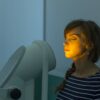When you go to the ER, it can be one of the worst days of your life. It’s good to know that you are meeting top professionals when you get there.
My mother-in-law will be 95 in less than a month. She lives on her own, shops and cooks for herself and keeps in touch with the 30 or so people in her immediate family.
Despite her excellent health and high level of activity, we’ve had to take her to the emergency room several times in the past couple of years.
My niece-in-law is a nurse in one of the leading ERs in the country. The ER accepts all people, regardless of ability to pay, which means they care for a lot of homeless, helpless people. Some of the people are violent and abusive. This ER also cares for prisoners from a local penitentiary. Despite that, we always take my mother-in-law to that ER, even when my niece is not on duty.
In this way I’ve caught a glimpse of the surrealistic conditions my niece works in and the amazing breadth of conditions she faces every day. I thought I kind of understood her job, but I recently read a book that taught me so much more about the daily life of a nurse.
Theresa Brown, RN, wrote The Shift: One Nurse, Twelve Hours, Four Patients’ Lives. This memoir reads like a novel, bringing backstory to the patients and drama when she advocates for her patients to doctors and family.
I had never realized how many tasks are involved in caring for a person. Medicines at specific times, of course, but also responding to complaints of pain, educating patients in what self-care they will be responsible for at home, charting every action, pill and blood pressure reading. Accepting a new patient, even though expected, takes time and attention to settle the patient in and understand his or her individual protocol. Preparing release instructions for a patient requires 2 nurses to read each other the med list and check it for errors, like medicines that might have bad interactions or unclear dosages.
What a gift to have this insight! I knew that what my niece does as a nurse is important and demanding, but now I feel like I have an actual idea of what her day might be like — even though Brown didn’t have the additional challenge of dealing with drug addicts crashing or inmates cursing her out.
My promise to myself for the next time I take a loved one to the ER is to trust the ER staff a little more, hesitate before I push for quicker action and try to remain calm.
Which leads me to reference just 3 of the 10 Surprising Things You Need to Know About the Emergency Department, a blog post by Irene Tien, MD, on MedPage Today’s KevinMD.com.
3 ER Things to Know:
We are primarily there for emergencies. This means that even though almost 50 percent of medical care is provided in the ED in the U.S., not all of that care is emergent. Triage nurses are trained to help prioritize which people are most likely to be having a medical emergency over the people who are not. If you are not having a medical emergency, you may have to wait until we tend to those that are. This is frustrating, but you will appreciate it the day you or your loved one is the one with the emergency, and we drop everything to take care of you.ED staff get interrupted. A lot. We are used to multitasking because all of the staff are working to take care of multiple people at one time. A recent study showed that ED doctors are interrupted an average of 12.5 times/hour during a shift. We try our best to limit interruptions, but this is often not possible because of urgent patient needs, consultants calling back, urgent lab results needing attention, orders needing to be entered in the computer, etc. Please be patient if we get called away in the middle of tending to your needs. We honestly wouldn’t interrupt our time with you if we didn’t have to.
Every patient is a VIP. Treating people differently based on who they are or who they know is not in our genes. We work in the ED because we want to take care of everyone who comes in our front door to the best of our ability.
After seeing the excellent care my mother-in-law receives and reading Brown’s book, I now believe that last point is the most sincere.







